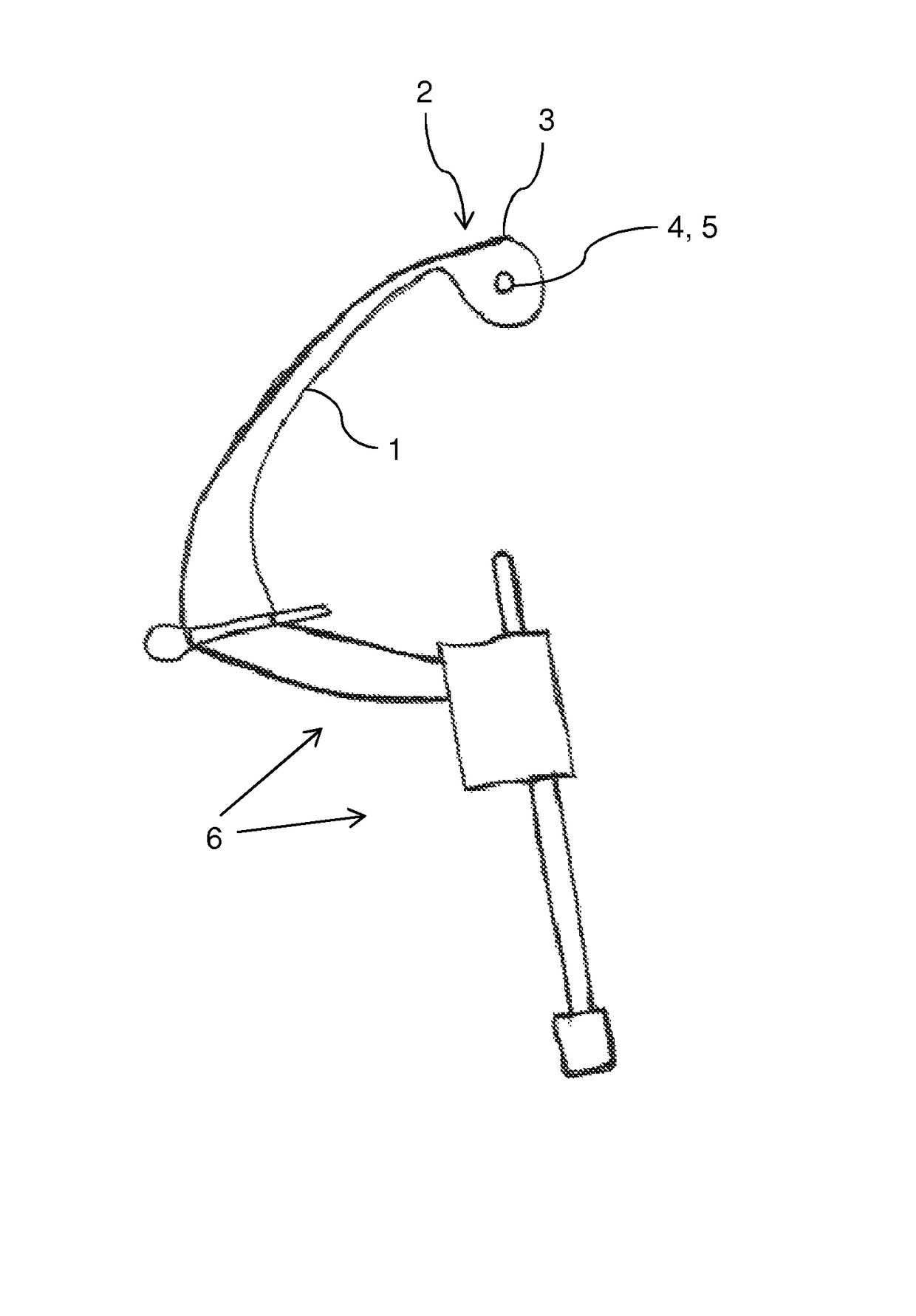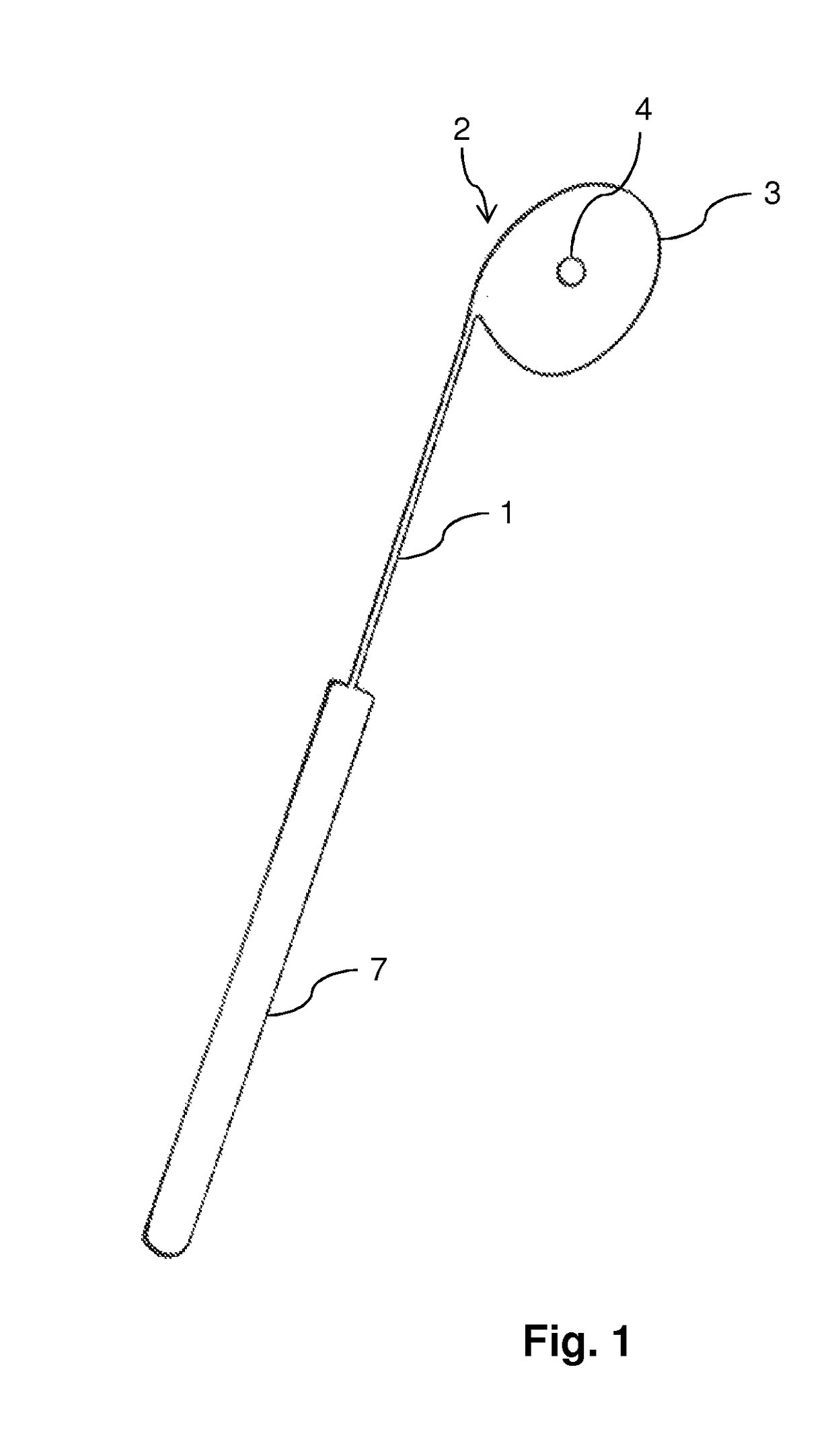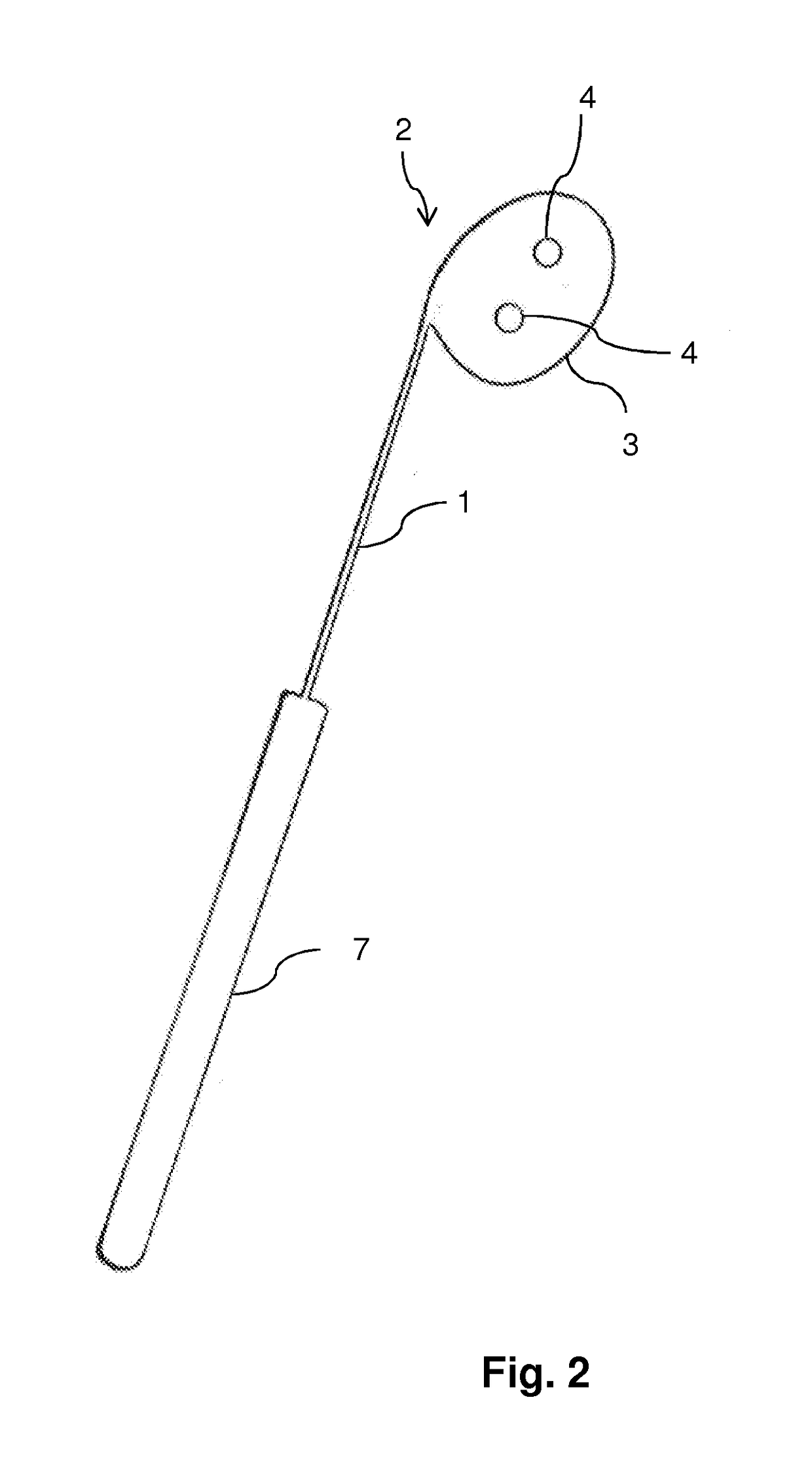Device for placing bore channels when attaching artificial ligaments to the bone and method for producing a corresponding device
a technology for artificial ligaments and bore canals, which is applied in the field of patient specific devices and individual anatomic placement of bore canals when attaching artificial ligaments to bones, can solve the problems of complex and expensive revision surgeries, permanent mobility impairment of patients, and inability to meet patient needs
- Summary
- Abstract
- Description
- Claims
- Application Information
AI Technical Summary
Benefits of technology
Problems solved by technology
Method used
Image
Examples
Embodiment Construction
[0043]FIGS. 1 and 2 show an—implied—schematic representation of a device according to the invention for the patient-specific, individual anatomic placement of bore canals on the thigh and lower leg during anterior cruciate ligament reconstruction.
[0044]The device comprises a probe 1 to be inserted into the joint through an arthroscopy portal. A targeting head 2 is provided at the distal end of the probe. It holds an individually produced targeting template 3, which was generated on the basis of a 3D MRI or a 3D CT scan in accordance with the actual conditions of the respective patient and optimized in preparation of the production.
[0045]FIG. 1 specifically shows a device having a passage 4 for realizing the single bundle technique, while FIG. 2 shows an exemplary embodiment of the device according to the invention having two passages 4, namely for realizing the double bundle technique. Guide sleeves 5 can be provided instead of simple passages 4.
[0046]FIG. 3 shows a further exemplar...
PUM
 Login to View More
Login to View More Abstract
Description
Claims
Application Information
 Login to View More
Login to View More - R&D
- Intellectual Property
- Life Sciences
- Materials
- Tech Scout
- Unparalleled Data Quality
- Higher Quality Content
- 60% Fewer Hallucinations
Browse by: Latest US Patents, China's latest patents, Technical Efficacy Thesaurus, Application Domain, Technology Topic, Popular Technical Reports.
© 2025 PatSnap. All rights reserved.Legal|Privacy policy|Modern Slavery Act Transparency Statement|Sitemap|About US| Contact US: help@patsnap.com



